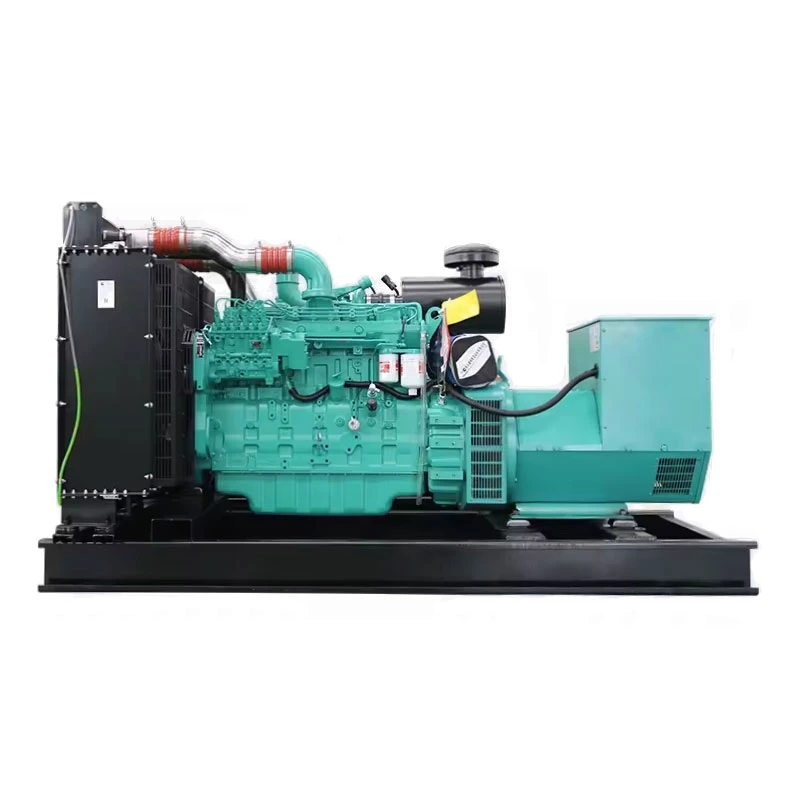Introduction
Diesel generators are essential pieces of equipment that provide backup power in various settings, including homes, businesses, hospitals, and industrial facilities. These generators are reliable sources of power during emergencies, blackouts, or situations where the main power supply is unavailable. However, like any mechanical device, diesel generators can encounter problems that may hinder their performance. In this article, we will explore common issues that may arise with diesel generators and provide practical solutions for troubleshooting and problem-solving.
Understanding Diesel Generators

Before delving into the common problems associated with diesel generators, it is essential to understand how these machines operate. Diesel generators work on the principle of converting diesel fuel into electrical energy through a process known as combustion. The key components of a diesel generator include the engine, alternator, fuel system, cooling system, and control panel.
The engine is the heart of the generator and is responsible for converting the chemical energy in diesel fuel into mechanical energy. This mechanical energy is then transferred to the alternator, which converts it into electrical energy. The fuel system supplies diesel fuel to the engine, while the cooling system regulates the temperature of the engine to prevent overheating. The control panel is the brain of the generator, monitoring various parameters and ensuring the generator operates smoothly.
Common Problems and Solutions
1. Starting Issues
Problem: One of the most common problems with diesel generators is difficulty starting. This issue can be caused by various factors, such as a dead battery, fuel supply problems, or a faulty starter motor.
Solution:
- Check the battery: Ensure that the battery is fully charged and in good condition. If the battery is old or weak, consider replacing it.
- Fuel supply: Verify that there is an adequate supply of diesel fuel in the tank. Check for any clogs or blockages in the fuel lines that may be preventing fuel from reaching the engine.
- Starter motor: Inspect the starter motor for any signs of wear or damage. If the starter motor is malfunctioning, it may need to be repaired or replaced.
2. Overheating
Problem: Overheating is a common issue that can affect the performance of a diesel generator. High temperatures can lead to engine damage and reduce the efficiency of the generator.
Solution:
- Check the cooling system: Inspect the radiator, coolant levels, and cooling fan to ensure they are functioning properly. Clean any debris or dirt that may be blocking airflow to the radiator.
- Monitor the operating temperature: Keep an eye on the temperature gauge on the control panel. If the generator is running too hot, shut it down immediately and allow it to cool before investigating further.
- Regular maintenance: Perform routine maintenance tasks, such as changing the coolant and cleaning the radiator, to prevent overheating issues.
3. Fuel Contamination
Problem: Contaminated fuel can cause serious problems for diesel generators, leading to engine damage and poor performance. Common contaminants include water, dirt, and microbes.
Solution:
- Fuel filtration: Install high-quality fuel filters to remove contaminants from the diesel fuel before it reaches the engine. Regularly replace the filters to ensure they are effective.
- Fuel testing: Periodically test the diesel fuel for contaminants using fuel analysis kits. If contamination is detected, take corrective actions to clean or replace the fuel.
- Fuel storage: Store diesel fuel in clean, dry tanks to prevent contamination. Use biocides and additives to inhibit microbial growth in the fuel.
4. Exhaust Smoke
Problem: Excessive exhaust smoke from a diesel generator can indicate issues with the fuel combustion process, engine components, or air intake system.
Solution:
- Check fuel quality: Poor-quality fuel can result in incomplete combustion and excessive smoke emission. Use high-quality diesel fuel to ensure clean and efficient combustion.
- Air filter inspection: Inspect the air filter for dirt or debris that may be restricting airflow to the engine. Clean or replace the air filter as needed to improve combustion efficiency.
- Engine tuning: Consult a qualified technician to adjust the engine settings for optimal performance and reduced smoke emission.
5. Electrical Issues
Problem: Electrical problems, such as voltage fluctuations, frequency variations, or circuit overloads, can disrupt the operation of a diesel generator and damage connected equipment.
Solution:
- Voltage regulation: Check the voltage regulator on the generator to ensure it is functioning correctly. Adjust the voltage settings as needed to maintain stable electrical output.
- get redirected here : Avoid overloading the generator beyond its rated capacity. Distribute the load evenly across multiple circuits to prevent electrical issues.
- Electrical testing: Periodically test the generator's electrical output using a multimeter or similar device to ensure it meets the required voltage and frequency levels.
Conclusion
Diesel generators play a vital role in providing backup power during emergencies and ensuring continuity of operations in various settings. By understanding the common problems that can arise with diesel generators and implementing proactive solutions, users can maintain the reliability and performance of these critical machines. Regular maintenance, monitoring of key parameters, and prompt troubleshooting of issues are essential practices to ensure the proper functioning of diesel generators when they are needed most. By following the guidelines outlined in this article, users can effectively address problems with diesel generators and maximize their efficiency and longevity.
